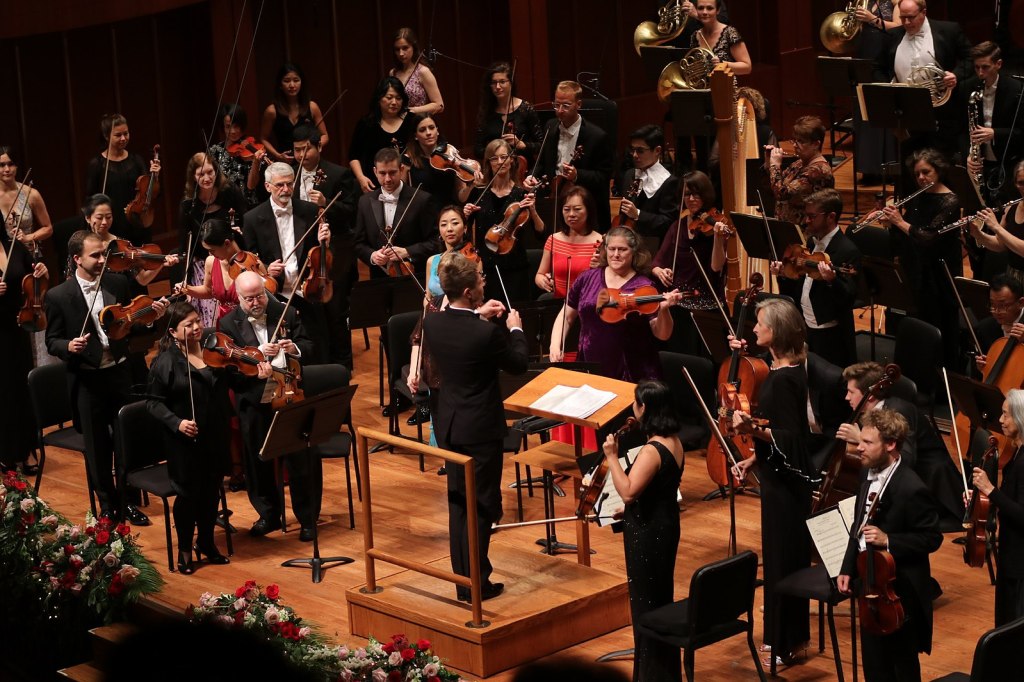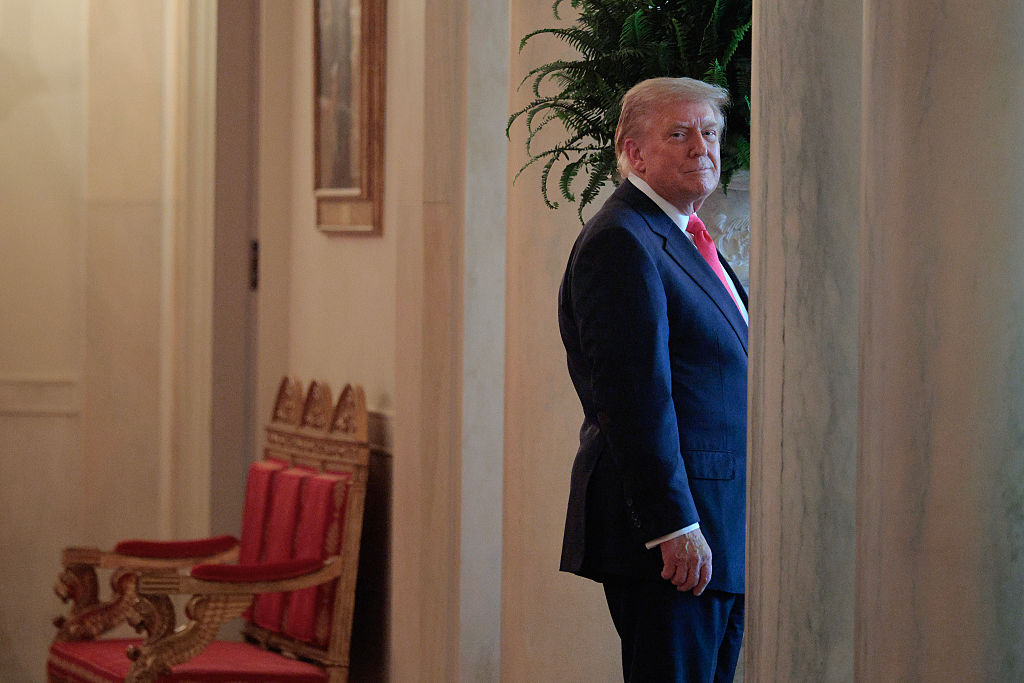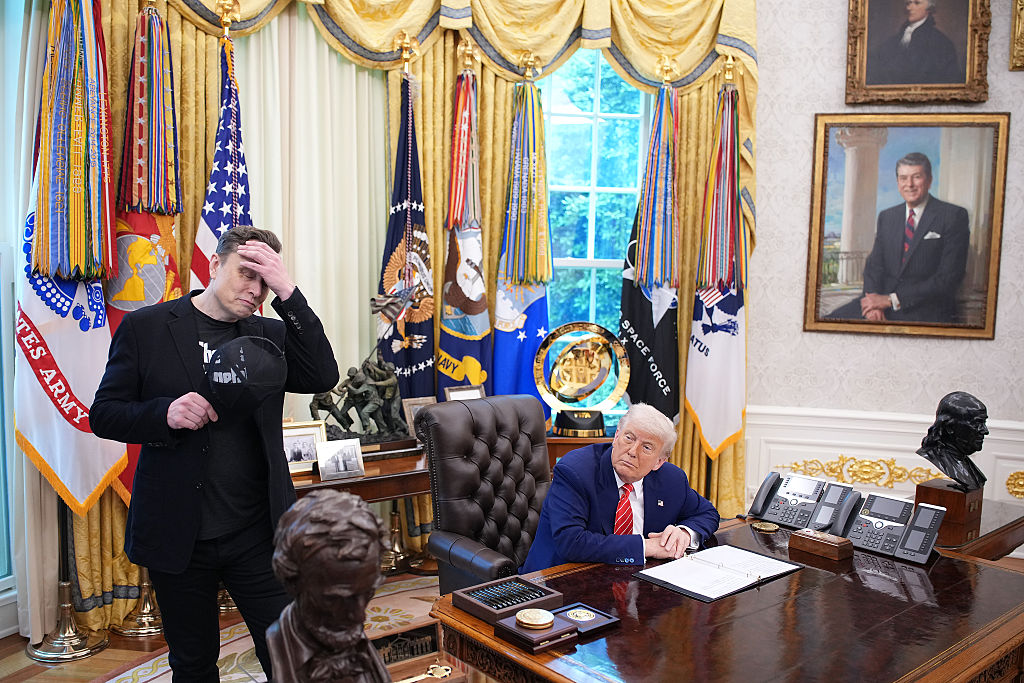In the Lamp, Matthew Walther wonders what has happened to genuine interest in highbrow culture in America. It used to be, he argues, unremarkable that certain young people might develop strong feelings about Joyce or A.E. Housman or George Eliot. Now, all that everyone cares about is pop culture:
Young people who set themselves apart from their peers with a real or (even an affected) interest in literature and classical music and a disdain for television, celebrity gossip, and what we now quaintly refer to as “Top Forty” seem to have gone the way of Rockefeller Republicans. A whole mental atmosphere that rejected crassness and commercialism, and whose inhabitants loomed over the culture as a definite archetype, has given way to something like what cultural critics call “poptimism,” which extends beyond popular music to “prestige” television, so-called graphic novels and their cinematic adaptations and even to video games.
In recent years a kind of shrill dismissiveness has taken over even in the vanishingly small space still afforded to literary criticism, and the idea of difficulty in literature is dismissed and (oddly for any admirer of Virginia Woolf or Marianne Moore) reflexively male. An entire subgenre is dedicated to repudiations of David Foster Wallace, whose besetting literary sin seems to be that he is enjoyed by people who do not also share a consuming interest in the outfits worn at this year’s VMAs or have views about “WAP” and other mysterious acronyms.
I’m not sure I share Walther’s sense that young people are completely enraptured with pop culture today, but he’s right that there certainly has been some shift.
He notes that social media and declining attention spans are surely partly to blame for highbrow’s woes, but he also wonders if its association with conservative politics has led increasingly liberal young people to view it as suspect:
While I am enormously grateful to the broadly neoconservative critics whose bestsellers did a great deal to encourage serious reading in the 1990s, it is difficult now to avoid the conclusion that they won no lasting victories. (Harold Bloom’s slightly more idiosyncratic attempt to promote literature as an anagogic secular priesthood of sorts was perhaps even less successful.) Meanwhile the frequently ill-chosen “Great Books” curriculums common at many conservative-leaning liberal arts colleges have turned so-called canonical texts into fetish objects, totems in the direction of which at least two generations of undergraduates have been taught to gesture with a kind of holy awe. This has meant, among other things, an almost total leveling off of their most arresting formal qualities and thus their ability to defamiliarize human experience. My conversations with dozens of former Great Books students leave me with the impression that these texts are understood as an undifferentiated word-mass that exists to be stripmined for ideas (or worse, enlisted in unedifying culture war skirmishes without having been read). I for one shudder to think of what I would have made of Paradise Lost as a maladjusted Marxist teenager if I had been told that by reading it I was shoring up the prospects for George W. Bush’s America rather than blowing off my civics homework.
This past weekend I gave a talk at the Philadelphia Society on precisely this topic — the conservative approach to literature and how it tends to view it primarily as means of character formation, which, in turn, can empty literature of much of its value. The talk may be published elsewhere, so I don’t want to say too much, but here is one paragraph where I discuss the problem Walther also identifies:
The problem of the approach to poetry one finds in Great Books curricula and on the right is that it tends to value poetry, and literature generally, as means of character formation. This is to espouse a view of poetry that is certainly more noble than that of the MFA poets and the Instapoets (who hope to benefit professionally or financially from publication) but not different in kind. To value poetry primarily for how it teaches us to be humble and kind, for how it teaches us to be good friends and citizens, for how it teaches us to act justly or to love well is also to view poetry as a means to an end. To value it primarily for what it says rather than how it says it is to undermine its integrity. This leads sooner or later to the subjugation of poetry to either politics or theology, which, in turn, renders it useless to society as poetry.
I went on to discuss Michael Oakeshott’s “The Voice of Poetry in the Conversation of Mankind.” Benjamin Myers and Nayeli Riano provided excellent responses. In all, it was encouraging to give the talk and to see it well received. One point I made at the end was that conservatives needed to start nourishing an interest not just in the ideas of literature but in its form and style. This would mean funding literary publications rather than just political magazines. Ben encouraged those present to support English departments—the ones worth supporting, that is, and, yes, there are a number of such—and encourage their children to major in the humanities.
In the Lamp, Walther argues that critics need to show both more ambition in covering highbrow culture and more humility:
It is much easier to say something interesting about Midnight Mass on Netflix than it is Charpentier’s Messe de Minuit pour Noel. Besides, in sticking with popular culture the critic enjoys the distinct advantage of being somehow superior not only to the majority of his or her comparatively undiscriminating fellows in the audience but to the material itself.
I will never be superior to Bach or Haydn, if using that word is not a kind of category mistake, but after two decades of dedicated listening, I find that I have opinions that I am not embarrassed to share about, for example, the now-forgotten but delightful orchestral transcriptions of the former by Leopold Stokowski. But even now in my own writing I am more likely to follow the example of Kingsley Amis, a devoted hi-fi fan with no musical training whose criticism is full of sentences like “What man in my position would dare to try to say anything remotely new about Schubert’s Unfinished Symphony?”
In other news
James Panero writes that American elites have not only abandoned our cultural institutions, but are undermining them:
Americans are still the great beneficiaries of the historical largesse of this untitled nobility. The institutions that continue to enrich the country’s lives are, by and large, the continuation of the ones founded a century ago or more by elite benefactors. As an expression of the importance that the American Founders placed on these private associations—for example, when it comes to the country’s oldest schools—this institutional history extends to before America’s national beginnings. The cultural enrichment that American elites helped to nurture has been an impressive reflection of the country’s democratic ideals. And yet, rather than support these institutions as pinnacles of civilizational achievement, many of today’s elites seem determined to undercut them. They gnash their teeth at their own history. They rend their garments at their own complicity. Then they make an active show of ripping apart their charges at the seams: closing the books, covering the art, destroying the monuments, censoring the students, canceling the discourse, and ridiculing the historical mission. Such impulses inform elite behavior across the Western world. This show of cultural weakness has been a provocation with deadly consequences. For those of us still concerned with the preservation of wisdom—an inheritance of culture that transcends politics—the results have been heartbreaking. For those concerned for the fabric of democratic nations, the effects are now all the more horrifying.
Bill McClay (who, as president of the Philadelphia Society, organized the conference I noted above) writes about the relationship between wonder and knowledge in the Hedgehog Review:
Students of Plato will remember Socrates’s encounter with the young prodigy Theaetetus, who would become one of the most influential mathematicians of the ancient world. As Plato tells the story, Theaetetus became so enthralled with Socrates’s dialectical riddles that he confessed himself “dizzy” with “wondering” whether these mysteries could ever be unraveled. To which Socrates responded with an approving pat on the head, “This sense of wonder is the mark of the philosopher. Philosophy indeed has no other origin.” Plato’s student Aristotle agreed: It was “wonder” that prodded the first philosophers to engage in their characteristic activity. And Thomas Aquinas, Aristotle’s devoted student more than a millennium later, echoed the claim that philosophy “arises from awe” and the philosopher is one who is “big with wonder.” Yet the connection between the sense of wonder and the drive for knowledge has not stayed constant in subsequent years.
Philip Pullman is no longer the president of the Society of Authors. Alexander Larman reports:
Pullman has this week announced his resignation as President of the Society of Authors, a year before he was due to depart, in circumstances that can only be described as unpleasant. Last summer, Clanchy was accused of using “ableist” and racist terms in her Orwell Prize-winning memoir Some Kids I Taught and What They Taught Me. Her graceless and factually inaccurate response, in which she denied using language that was indeed to be found in the book, did her little credit, but then neither did the hysterical response of her critics, who all but demanded that she be lynched for her transgressions. The saga dragged on for months. Pullman initially came in on the side of Clanchy when he tweeted that her detractors “would find a comfortable home in Isis or the Taliban”. He caused outrage, both for the bluntness of his words and for the fashion in which, in his honorary role as president of the Society of Authors, he was appearing to criticize some of its members in the matter. Pullman was prevailed upon to delete his tweet and to apologize for any offense caused.
Why did a suburban New Mexico couple steal a Willem de Kooning painting and hang it on their bedroom door?
She was a retired speech pathologist, and he was a retired music teacher. For all intents and purposes, Rita and Jerry Alter were a totally normal couple living in the New Mexico suburbs — except for one thing. They had a stolen Willem de Kooning painting worth $160 million hanging behind their bedroom door. The couple’s purported double lives as high-stakes art thieves has made headlines ever since their prized painting was identified as a missing de Kooning in 2017. Now, reports Vivie Behrens for the Austin Chronicle, a new documentary titled The Thief Collector attempts to answer the why of the story: namely, why would a husband and wife described by friends as “not exactly thrill-seekers,” in the words of ARTnews’s Alex Greenberger, pull off such a heist? And were the Alters hiding other, even darker secrets?
Exhortations to reorient American politics toward the common good abound. This rhetoric revives a long American political tradition of reasoning that emphasizes our duties more than our rights. Such reasoning offers a valuable corrective to decades of liberal theorizing that tended to ignore the common good. Yet one curiosity concerning these appeals to the common good is their tendency to avoid discussing the pressing challenges that undermine them — and they especially seem to ignore the limits that human frailty, ignorance, and vice impose on doing good in public life. It was not always thus. Historian Robert Tracy McKenzie’s We the Fallen People attempts to understand the shift from a republican polity founded on an understanding of human flaws to a democratic nation perpetually forgetting the proper limits of politics.
Brian A. Smith reviews.
Christopher Scalia reviews Yascha Mounk’s The Great Experiment: Why Diverse Democracies Fall Apart and How They Can Endure:
Mounk is a vocal defender of the philosophical assumptions that undergird liberal democracies, which have been under attack from both left and right. Although he is undeniably a man of the left, he criticizes the tactics of both sides. Progressives, on the one hand, challenge diverse democracies by focusing too much on the ethnic and racial identities of citizens and, especially in the United States, understating the racial progress that has been gradually achieved. The right, on the other hand, threatens the great experiment by appealing to nationalism’s more dangerous impulses and being slow to recognize the rights of minorities.
Will Hay reviews Andrew Lampert’s The British Way of War: Julian Corbett and the Battle for a National Strategy: “Besides compelling adversaries to seek terms, Corbett’s strategy deterred rivals by raising the cost of aggression. It leveraged Britain’s advantages as an insular state with a dominant navy and strong public finances to wage the kind of war that favored its strengths instead of one that pressed its vulnerabilities.”
William Logan on John Berryman’s letters: “Reading letters is always an exercise in forensic pathology.”

























